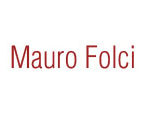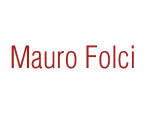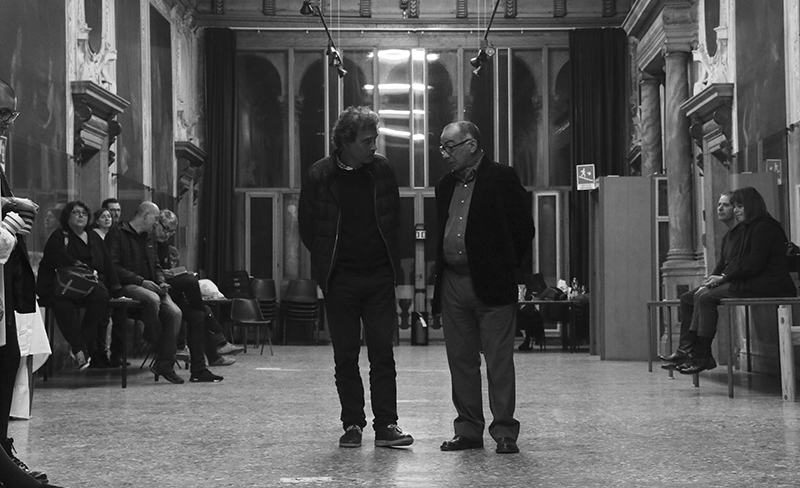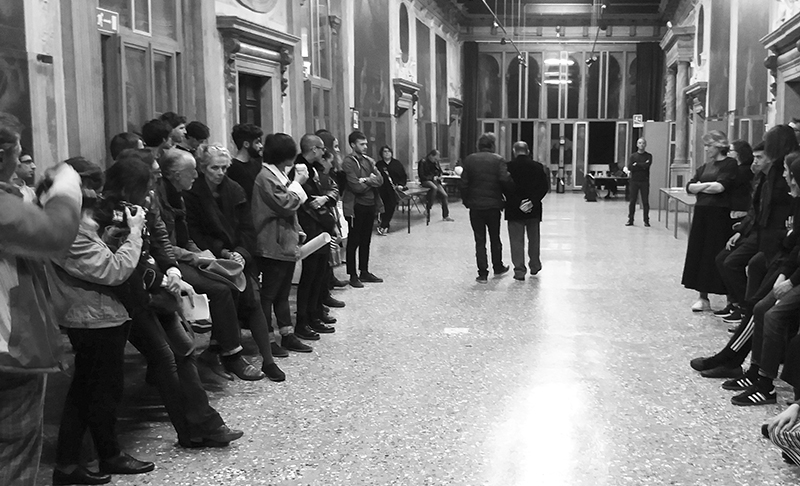Read the whole article
On Negating Action
He had effortlessly learned English, French, Portuguese, Latin. I suspect, nevertheless, that he was not very good at thinking. To think is to ignore (or forget) differences, to generalize, to abstract. In the teeming world of Ireneo Funes, there was nothing but particulars – and they were virtually immediate particulars.(1)
It is not uncommon, for each of us during our lifetime, to experience a very special memory, which seems so lifelike as to appear real, almost as if we were (re)living, in the present, an event we had already experienced in the past. A rather disturbing space/time experience, dissociative to say the least, because what happened then appears to us clothed in the semblance of now. This is a manifest phenomenon of our times, which we recognise as a déjà vu, a peculiar experience of the memory which, within certain limits, is salvific beyond the necessary to life, but which, once they have been overcome, become a symptom of suffering and impotence: the certainty of recognising the facts that are taking place here and now, as something out of the past which is repeating itself in the same form and with the same contents and outcome. This passion is accompanied by the illusion that nothing can be said and done another time and that history, such as the history of chronological facts, first and foremost as a supra-personal history (production of general intellect), has reached a point of exhaustion in an undifferentiated repetition of the same. This overwhelming and disabling passion for excess and stagnation of the memory in the present, which I seem to grasp everywhere, among the people walking in the streets or sitting at bar tables, is a predominant feeling of our times that closes to the future and quashes conflict. A state of things and souls that leads one to believe that there is nothing else beyond the present, that the historical course has actually come to an end and, with it, the dialectic that is critical thinking, that is Negating action. In the streets and seated at bar tables, what do I see… I see smiling and friendly people, I see young people kissing and older people holding hands and so I think of Bergson: “we feel that we choose and will, but that we are choosing what is imposed on us and willing the inevitable”(2). The end of the Negating action, which stands for the end of historical time, is no longer a literary or philosophical work on which to base our reasoning about the future, perhaps it is no longer a metaphor but – in the face of the psychic, depressive and paralyzing block, so widespread globally and amplified as never before in the history of humanity by technology – an objective observation that the future, for much of the population, has been erased or handed over to algorithms, and the subjectivities captured by the value machine for what they are. The decision to undertake a study on the end of historical time has last been stimulated by Alexandre Kojève’s Introduction to the Reading of Hegel, in which the author ventures a very evocative interpretation of Hegel’s phenomenology, with a great deal of critical stimuli, the most surprising of which is the idea that the end of History, as the end of Negating action – of Action with a capital A which is equivalent to the end of the servant/master conflict, the end of work, philosophy, art and the like – necessarily leads to a return to animality. This return to animality, a recurring theme in my research, which does not, however, dialogue with the nursery rhymes of post-historic ideology, paves the way for further developments of pressing topicality, as one of the terms on which the political device of the West of inclusive exclusion pivots, i.e. the zoe-bios dialectic that, from time to time, defines what is human and what is not. (3) I particularly appreciated, in this sense, two notes in Kojève’s book (4), which I have added word by word in the performance On Negating Action. They are two consecutive notes, in the first note – it appears alone in the first edition of 1947 – Kojève does not believe in the return to animality as an inevitable consequence of the end of the negating Action; in the second note, which he adds in the second edition, after having travelled in Japan and America, he argues that the end of historical time, or rather of the negating Action, is already reality – the model is Japanese snobbery – and that man’s destiny is that of a regression to an animal condition.
In between Kojève’s two notes I have added three witty remarks, the first is by Ludwig Wittgenstein, the other two are by Sigmund Freud, which are used (and betrayed) here as a counterpoint to the nursery rhyme of the end of negating Action: in a witty remark one can see, in a fraction of time, the world as it could be otherwise.
1° nota
The disappearance of Man at the end of History, therefore, is not a cosmic catastrophe: the natural World remains what it has been from all eternity. And, therefore, it is not a biological catastrophe either: Man remains alive as animal in harmony with nature or given Being. What disappears is Man properly so-called – that is, Action negating the given, and Error, or in general, the Subject opposed to the Object. In point of fact, the end of human Time or History – that is, the definitive annihilation of Man properly so-called or of the free and historical Individual – means quite simply the cessation of Action in the full sense of the term. Practically, this means: the disappearance of wars and bloody revolutions. And also the disappearance of Philosophy; for since Man himself no longer changes essentially, there is no longer any reason to change the (true) principles that are at the basis of his understanding of the World and of himself. But all the rest can be preserved indefinitely; art, love, play, etc., etc.; in short, everything that makes Man happy.
Let us recall that this Hegelian theme, among many others, was taken up by Marx. History properly so-called, in which men (“classes”) fight among themselves for recognition and fight against Nature by work, is called in Marx “Realm of necessity”; beyond is situated the “Realm of freedom”, in which men (mutually recognising one another without reservation) no longer fight, and work as little as possible (Nature having been definitively mastered – that is harmonised, with Man).
(pause)
I marvel at the sky however it is.
I marvel at the existence of the world.
(pause)
The attributes of the greatest men were all united in himself. Like Alexander, his head was tilted to one side; like Caesar, he always had something in his hair. He could drink coffee like Leibniz, and once settled in his armchair, he forgot eating and drinking like Newton, and like him, had to be awakened. He wore a wig like Dr. Johnson, and like Cervantes, the fly of his trousers was always opened.
(pause)
And as true as I pray that the Lord may grant me all good things I sat next to Solomon Rothschild, who treated me just as if I were his equal, quite famillionaire.
(pause)
2° nota
The text of the preceding note is ambiguous, not to say contradictory. If one accepts “the disappearance of Man at the end of History,” if one asserts that “Man remains alive as animal,” with the specification that “what disappears is Man properly so-called“, one cannot say that “all the rest can be preserved indefinitely: art, love, play, etc..” If Man becomes an animal again, his arts, his loves and his play must also become purely “natural” again. hence it would have to be admitted that after the end of History, men would construct their edifices and works of art as birds build their nests and spiders spin their webs, would perform musical concerts after the fashion of frogs and cicadas, would play like young animals, and would indulge in love like adult beasts. But one cannot then say that all this “makes Man happy“. One would have to say that, post-historical animals of the species Homo sapiens (which will live amidst abundance and complete security) will be content as a result of their artistic, erotic and playful behaviour, inasmuch as, by definition, they will be contented with it. But there is more. “The definitive annihilation of Man properly so-called” also means the definitive disappearance of human Discourse (Logos) in the strict sense. Animals of the species Homo sapiens would react by conditioned reflexes to vocal signals or sign “language,” and thus their so-called “discourses” would be like what is supposed to be the “language” of bees. What would disappear, then, is not only Philosophy or the search for discursive Wisdom, but also that Wisdom itself. For in these post-historical animals, there would no longer be any “[discursive] understanding of the World and of self.”
(1) J. L. Borges, Funes, l’uomo della memoria, in Id., Finzioni, Milano, Adelphi, 2003, p. 103.
(2) H. Bergson cit. in P. Virno, Il ricordo del presente. Saggio sul tempo storico, Torino, Bollati Boringhieri, 1999, p. 14.
(3) This inclusive exclusion device has been examined by G. Agamben, L’uso dei corpi, Vicenza, Neri Pozza, 2014.
(4) Alexandre Kojève, Introduzione alla lettura di Hegel, Milano, Adelphi, 1996, p. 541.
Information:
Subsequently, the performance Dell’Azione negatrice (On Negating Action) was held in Venice, in the picture gallery on the main floor of Ca’ Tron, during a performative lecture event curated by Rachele Palma.
In 2018, in Milan, during the exhibition Dialoghi, Demetrio Giacomelli – Mauro Folci, curated by Matteo Cremonesi at the Office Project Room gallery, the performance On Negating Action took to the streets, engaging the passers-by to gauge their reaction.
The performance once again took to the streets in Turin, in connection with the local Film Festival, and broadcast live at the cinema. I’m sure that the history, the urban planning, the culture of Turin and not least the madness of Nietzsche would dialogue well with the performance.
On Negating Action: with the participation of Luca Miti, Pasquale Polidori, Gianni Piacentini, Francesca Gallo, Marco Santarelli.
In the video and voice-overs: Luca Miti, Mauro Folci, Gianni Piacentini.
Video filming and photography with a smartphone: Francesca Gallo, Pasquale Polidori, Marco Santarelli.
Dell’Azione negatrice (On Negating Action) (2017) is a performance. The End of History is a video and a photonovel.
The video (8’19”) was shot on the occasion of the art show Vacanze (Vacations), curated by Anna Cestelli Guidi, at the Spazio/Arte Gallery in the Rome Auditorium (2017).
La fine della storia/The End of History is a video mostly filmed in Rome’s National Gallery of Modern Art, during the exhibition Time is Out of Joint curated by the gallery director and in conjunction with Sensibile/comune, an exhibition associated with the C17, the important international conference on Communism held in Rome, at the beginning of the year. An exhibition, alas, like a thousand others: the banality of the mainstream, the wit of shop-keepers. This curious twinning between an art outside of historical time and an art inspired by the communist commonplace projected within me the image of a bucolic lifestyle, of a peaceful life lacking conflict. A genre painting and yet very topical, if we interpret it as a trompe l’oeil that meticulously describes the predominant state of mind: the impossibility of thinking an innovative action.









